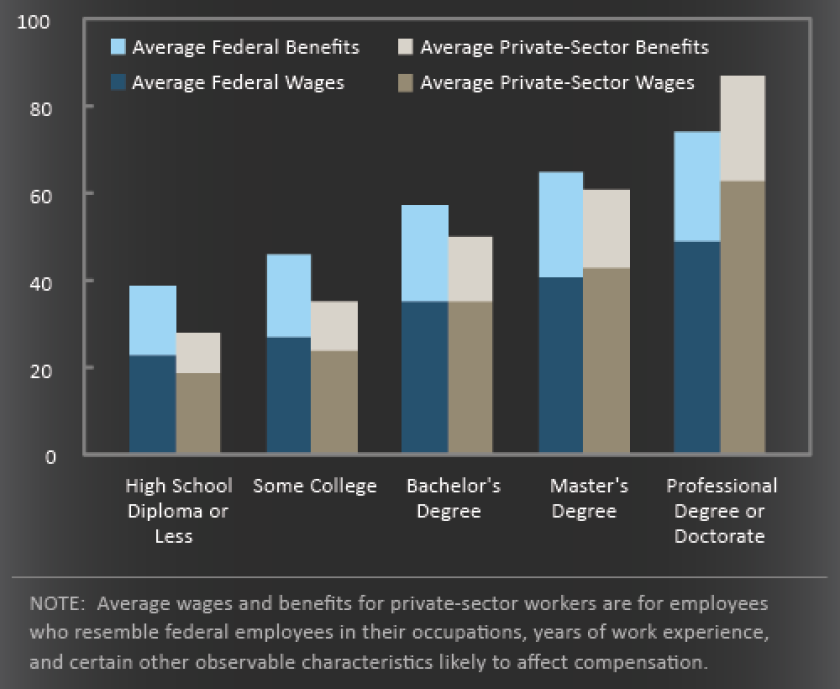According to CBO's report:
Overall, the federal government paid 16 percent more in total compensation than it would have if average compensation had been comparable with that in the private sector, after accounting for certain observable characteristics of workers.
Overall, the federal government paid 2 percent more in total wages to its workers than it would have if their pay was in-line with private-sector workers when controlling for characteristics like occupation, education level, and certain demographic factors. But the federal workers' benefits were an average of 48 percent higher.
President Obama is expected to request a pay-raise for federal workers in his forthcoming 2013 budget.
Rep. Jeff Sessions (R-Ala.), ranking member of the Senate Budget Committee, requested that CBO analyze the issue. The report could be a polarizing document, given the Congressional focus on deficit reduction and spending cuts.
The study didn't discuss the virtually-guaranteed job security that comes with federal employment. A USA Today analysis of that issue published last year found that in 2010, federal workers enjoyed a 99.43 percent job security rate, and in many agencies, employees were more likely to die of natural causes than get laid off or fired.
It's worth noting that, in terms of compensation, federal employment benefits those with a bachelor's degree or less, while it hurts those with a doctorate or professional degree. The federal government has a larger proportion of highly-educated workers than the private-sector.
Total compensation costs were 36 percent higher in the federal sector for those with a high school diploma or less, and 15 percent higher for those who had a bachelor's degree. For those with professional degrees or doctorates, compensation was 18 percent lower than it was for similar private-sector workers.
The study notes that the analysis isn't perfect, since it would be almost impossible to determine precisely what a federal worker would earn in the private sector. The study did not analyze members of the military or postal workers, and part-time and seasonal workers were excluded.

Source: CBO








